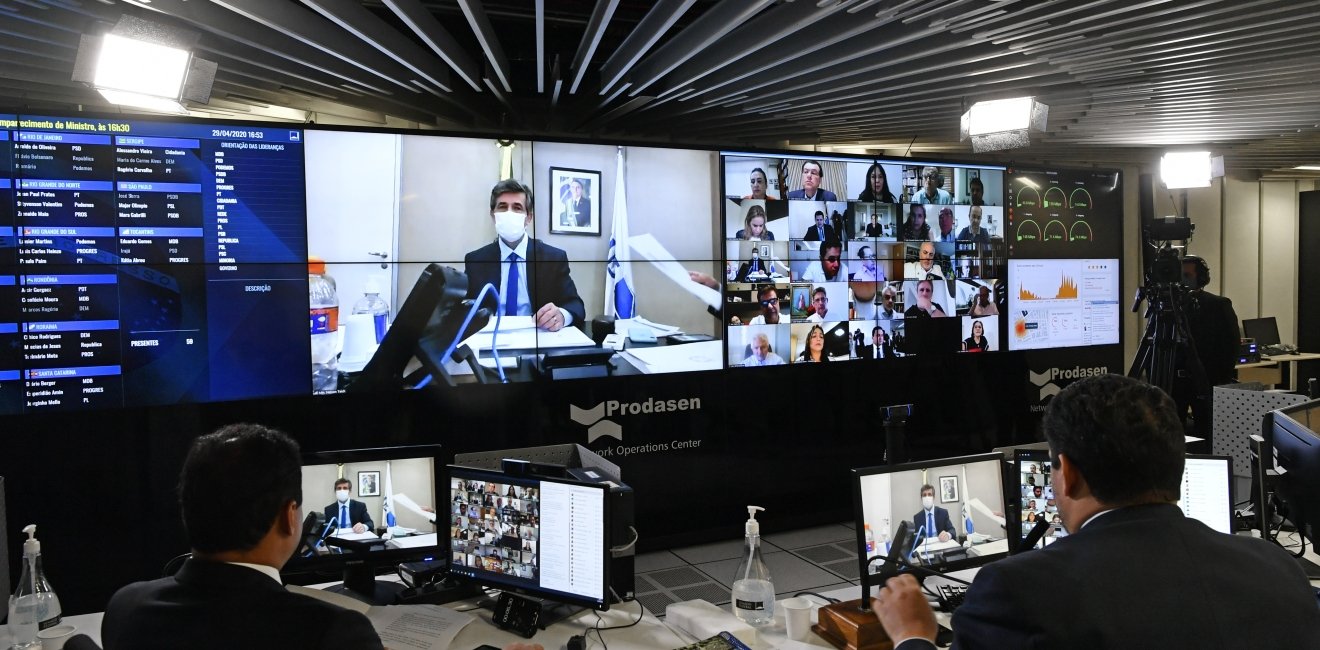
A blog of the Latin America Program
Health Ministry Musical Chairs
By Lucy Hale
As Brazil faces the deadliest days of the pandemic and the collapse of its hospital system, its Health Ministry is under new management. Again. In March, President Jair Bolsonaro replaced Health Minister Eduardo Pazuello, an army general who had no previous public health experience, with Marcelo Queiroga, the head of the country’s cardiology association. Pazuello had spent only ten months on the job. Quieroga, Brazil’s fourth health minister since the start of the pandemic, inherits a highly contagious variant and out-of-control viral spread that has put intensive care unit capacity above 80 percent.
Brazil’s pandemic management has been uniquely haphazard; Bolsonaro’s first two health ministers quit in protest. However, frequent health ministry turnover is not unique to Brazil. The region’s top health officials face an unenviable assignment. Latin America is the world’s hardest hit region, and it is paying a high price for decades of underinvestment and inequality in public health infrastructure: as of March 15, 23 million Latin Americans had contracted COVID-19 and 720,000 had died of the disease, according to UN data. On average, Latin American governments invest 3.7 percent of GDP on public health, far below the 6 percent target recommended by the Pan American Health Organization. As a result, even before the pandemic, the region struggled to care for the legions of Latin Americans suffering non-communicable diseases, such as cancer, diabetes and heart disease.
The region’s failure to control corruption has further complicated the job, and job prospects, for Latin America’s senior health officials. Latin America’s health sector is always vulnerable to corruption, given low levels of transparency and competition. Today, those problems are amplified by public pressure for rapid spending. Fraud in Brazil, Colombia, Guatemala, Honduras and elsewhere has squandered scarce resources, with public officials paying high prices for low-quality medical equipment, including ventilators. The arrival of vaccines created new opportunities for improprieties, including favoritism. Argentina, Ecuador and Peru have all dismissed their health ministers for mishandling vaccine distribution, contributing to the region’s health minister musical chairs.
Thirteen countries in Latin America have changed health ministers at least once since the start of the pandemic: in all, 25 ministers have resigned or been fired. The circumstances have ranged from disagreements over health policy to the misuse of public funds and medical supplies. In all cases, the personnel upheaval has harmed the region’s response to its worst public health crisis in modern times.

Author


Latin America Program
The Wilson Center’s prestigious Latin America Program provides non-partisan expertise to a broad community of decision makers in the United States and Latin America on critical policy issues facing the Hemisphere. The Program provides insightful and actionable research for policymakers, private sector leaders, journalists, and public intellectuals in the United States and Latin America. To bridge the gap between scholarship and policy action, it fosters new inquiry, sponsors high-level public and private meetings among multiple stakeholders, and explores policy options to improve outcomes for citizens throughout the Americas. Drawing on the Wilson Center’s strength as the nation’s key non-partisan policy forum, the Program serves as a trusted source of analysis and a vital point of contact between the worlds of scholarship and action. Read more


Argentina Project
The Argentina Project is the premier institution for policy-relevant research on politics and economics in Argentina. Read more


Brazil Institute
The Brazil Institute—the only country-specific policy institution focused on Brazil in Washington—aims to deepen understanding of Brazil’s complex landscape and strengthen relations between Brazilian and US institutions across all sectors. Read more

Explore More in Weekly Asado
Browse Weekly Asado
Dengue Haunts South America’s Summers

Lessons from Costa Rica’s Economic Transformation

Women and Latin America’s Digital Revolution

